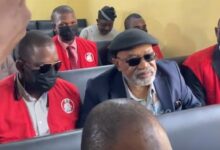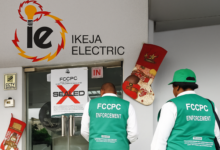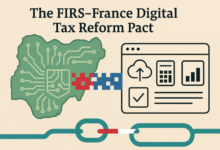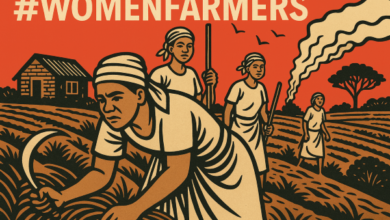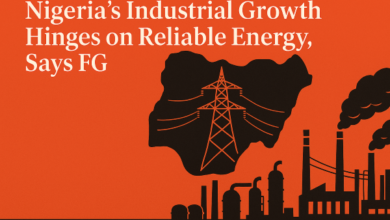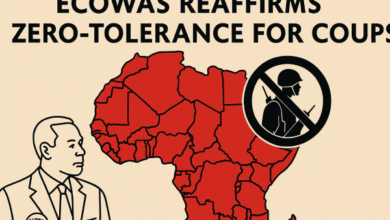NCDMB seeks collaboration of security agencies to enforce Nigerian Content Law

The Nigerian Content Development and Monitoring Board (NCDMB) on Tuesday sought the support of security agencies in its bid to enforce the Nigerian Content Act in the oil and gas industry.
Executive Secretary, NCDMB, Mr Simbi Wabote, made the appeal at a Nigerian Content Sensitisation programme for law enforcement agencies at the NCDMB Towers, Yenagoa.
The News Agency of Nigeria (NAN) reports that the programme has the theme “Deploying Multi-Institutional approach to Nigerian Content Enforcement in the Oil and Gas industry.
The event was attended by officials of the Economic and Financial Crimes Commission (EFCC), Independent Corrupt Practices and Other Related Offences Commission, (ICPC).
The Nigeria Customs Service, Nigeria Immigration Service, the Department of State Services, DSS, the Joint Task Force Operation Delta Safe, the Nigeria Police and Nigeria Security and Civil Defence Corps, NSCDC, among others.
According to Wabote, the board is already working with immigration service on expatriate quota system.
He explained that it was pertinent for all security agencies to understand their roles in the Nigerian Oil and Gas Industry Content Development Act (NOGICD), to foster collaboration and effective implemetation.
He said that building collaboration with institutions was one of the mandates of the Board, adding that the EFCC, ICPC, and others had statutory roles in enforcement of the NOGICD Act.
He said: “I think the two most important significant one is to enlighten stakeholders on what we do.
“How we do it and the results we have been able to achieve.
“The second is giving the participants the law enforcement agent.
“As you can see it is also to highlight to them the roles to play that they are required to play (because) intervention is needed.
“In order to help us prepare the provision of the Act, we have Customs, EFCC, ICPC, DSS. These are all law agents that all have roles to play as we implement the Act, so those are the significance of the workshop.
“For example EFCC law provides for people complying with laws and laws are laws and if there is a breach, you need the authority to help you go after these people, so that is part of the law that most of them maybe DSS, ICPC as the case maybe.
“Expatriate quota, we don’t give quotas but we endorse in accordance with the law; we approve requests from the oil and gas industry.
“People like immigration we work with them to ensure that the expatriates that we give approval to are those that are needed, and we go through the biometric process to ensure that we monitor those that were approved.
READ ALSO:https://brandeconomy.com.ng/nigeria-largest-catfish-producer-in-africa-official/
“Custom to this role again, there are certain items that are banned from the oil and gas industry that we cannot import.
“So, we work hand in hand to ensure that if those items are brought into the country, they are impounded to ensure the implementation of the Act and we need to collaborate with them to be successful with what we do,” he said.
The Head of NCDMB Legal Services, Mr Naboth Onyesoh, said the “Essence of the workshop is to assure and ensure that they are able to bring in relevant stakeholders to support in local content implementation and enforcement.
He said the idea was that local content was like a “big load” which no single entity can carry.
He said local content was a national economic agenda geared towards employment, creating industrialisation, ensuring capital retention in the country and so many activities revolving around the oil and gas industry.
He said: “We know oil and gas remains the mainstay of our economy, so it is important that other agencies that are connected with economic activities understand what the mandates of the board are and where they can support to ensure compliance with relevant requirements.
“With the oil and gas industry, that is the very essence of bringing in the relevant law enforcement agencies so that they will be able to partner with the board and collaborate to achieve collective impact in local content in the oil and gas industry.”
(NAN)



